Sad as it is to say, I suppose there’s nothing particularly out of the ordinary about another sequence of deaths and serious injuries of people riding bikes – the most troubling and unsettling being yet another woman being crushed by a left-turning tipper truck at a notoriously dangerous London junction – running in parallel with a series of poorly-timed articles and programmes, apparently driven by a media industry that seems determined to pour petrol on the flames of what should be a deeply serious issue, for the sake of ratings.
A feature of these articles in newspapers, or appearances on TV, is the reference to people cycling as ‘them’, or ‘they’. All from the last few days –
Glenda Slagg nonsense there, from Sarah Vine, Fiona Phillips, and Angela Epstein, respectively.
Of course the trick with this kind of ‘journalism’ is to play to what you think is your audience, parroting their prejudice back to them. And sure enough the response was predictable –


 Who is this ‘them’, though? Who are ‘they’?
Who is this ‘them’, though? Who are ‘they’?
Pictured below are just some of the 51 people who have been killed riding a bike in Britain so far this year.
Keep the word ‘them’ in mind.
‘Them’? What do these people have in common, beyond the tragedy of their deaths, and their mode of transport at that time?
They are – were – just ordinary people. Husbands, wives, fathers, mothers, daughters, sons. Not ‘them’. Ordinary people who just happened to be riding a bike.
Us.
The full list of 2015 fatalities is at Beyond The Kerb.




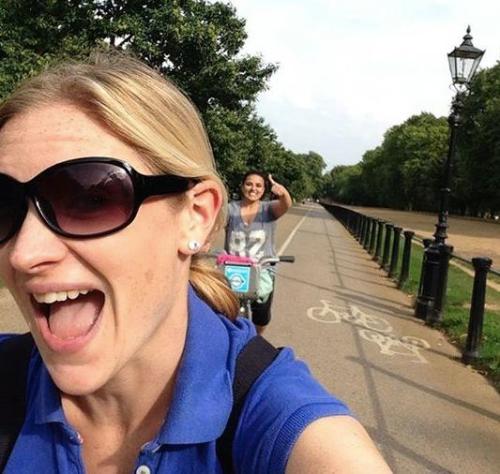
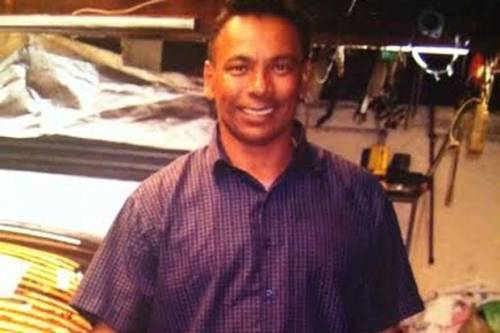
















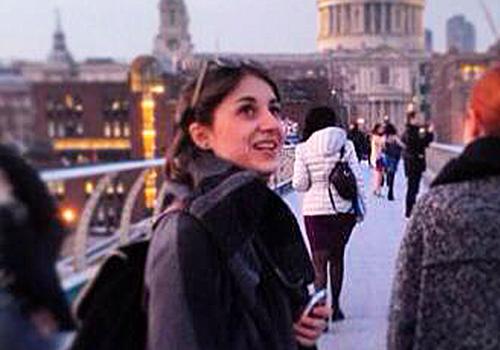




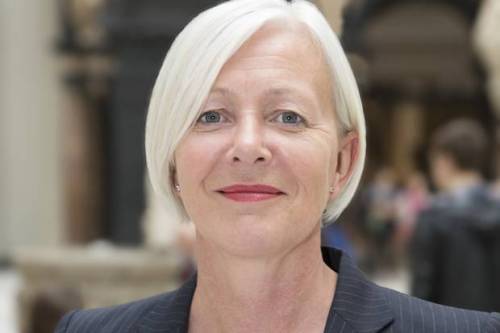
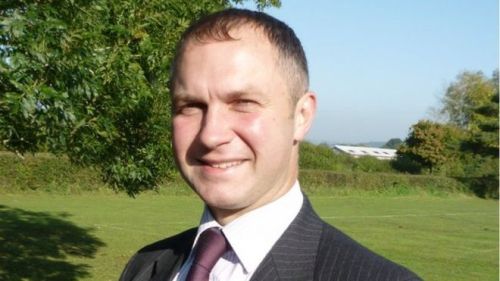







Very moving. Very powerful.
Your blog is incredible! Keep up the outstanding work 🙂
I hate to say this, but there is a problem here.
Your approach is decent, civilised and humane. It graphically and emotively points to human beings being killed with a (correct) assumption that we should all endeavour to stop danger being presented to people who are endangered in the way that people on bicycles (and others) are.
I have enough problems with the “road safety” industry, not to mention a lot of ordinary (and otherwise decent) people on this. I am afraid that all too many don’t want to be decent, civilised or humane. They may well see cycling itself as the problem, something inherently hazardous (“dangerous”), and which should not be considered as a sensible normal way of getting about, especially if there is any loss of perceived freedoms for them or others in their cars. Even if they are genuinely upset about these deaths, their approach may simply be that people should not be riding bicycles.
Or that the answer should be something the cyclist does (whatever the evidence as to lack of effect or relevance). Or a nonsense fantasy like the Skyway. Or anything providing it doesn’t see the problem as lying with what the motorised can do to others.
I’m afraid the characters in the media are just the ugly tip of the iceberg here. The culture of acceptance of motor danger and attendant victim-blaming runs deep, feeds into (and is in turn reinforced by) the practices of professionals and ordinary people in this society.
Being decent, humane and civilised is not enough.
Can you reason with fundamentalists, being them Islamists, Zionists or Anglophone assholes?
Maybe the best way is just to ignore them. and if they make your life miserable, move to more civilised lands.
I agree about your blog, it is fantastic. This article is very moving.
When I mentioned the latest casualty at Bank, a woman next to me at work said “What I don’t understand about cyclists is, they see all these accidents and people killed, what I don’t understand is….why they don’t get the message and just stop cycling – then there would be no more deaths?”
There is a huge gap in perception between people who cycle and people who don’t. It makes me worry for my own safety when I hear again and again that it’s sort of my fault if anything happens to me.
One could also ask why motorists don’t get the message and stop driving in urbanized areas? A city like London is a total mess; the last time I was there it was gridlock all day long in the area I was staying. It’s a fact that motorists all over the world even use their cars for short trips in their own neighbourhood, wasting time and money, expenses that could be avoided if cycling were an attractive option. How is it possible that there are just a handful of places where the bike is an option available to all?
That’s my immediate response as well – why don’t motorists just stop driving (well, just stop driving unnecessarily in urban areas). I mean, when driving motorists are damaging their own health through inactivity as well, not to mention pollution.
There’s just something deeply-rooted in human nature though that says ‘endangering yourself is more morally unacceptable than endangering others’.
Maybe “motorists” do get the message and maybe they do stop driving in urbanized areas.
Then what becomes of those “motorists”?
Perhaps they commute using public transport or cycle. What is it about this “them” and “us”? It’s people getting from A to B.
On one day I am a cyclist, pedestrian, motorist and user of public transport.
The correct response to this is: “I hear about rape in urban areas – why don’t women just stop going out?”
Thanks Dan, but I think if I said that, this woman (and I) would be put off by this analogy. I know what you mean, but it’s not quite right for this debate.
The interesting thing about this woman’s comments is that I know that in a year or two her little boy aged eight now is going to be trained up in Bikeabiklity (probably level 1 and 2). He is going to come home full of excitement and enthusiasm for this amazing machine that he’s learned to control and manage…. and his mum isn’t going to know how to deal with his passion. She will be terrified, like all the mums and dads – especially the ones who heard of that little girl who was killed by a vehicle driver recently.
I think proper enforcement is the way to go, rather than all this segregation stuff, well-meaning as it is. The little girl I mentioned was apparently on a segregated lane and was killed by another human when she rejoined the main road.
I think the key phrase being: “…when she rejoined the main road”, with the segregation evidently keeping her safe up to that point.
Hmmm… having used segregated areas and non-segregated areas I think that rejoining is one big problem. We are never going to get 100 per cent segregation… at least before I die. So I think we should change tack and campaign for a change in driver behaviour and proper enforcement with massive massive penalties.
The ‘shared-use’ path crosses the road with only a pedestrian refuge here.
https://goo.gl/maps/W8Ria
There is a footbridge a mile away.
There are plans
http://www.bbc.co.uk/news/uk-england-somerset-33044695
http://www.bbc.co.uk/news/uk-england-somerset-33078336
Again? That’s been tried for decades, with no success. Definition of madness, and all that.
Segregation is a proven solution. It may be expensive (up-front, not in the long run) and require extensive work, but within a few years the positive results would be plain for all to see.
No amount of education is going to get my 6 year old niece riding on the roads of Leeds.
Drivers don’t want to kill people on bikes, but people (in cars, lorries, on bikes, walking) make mistakes. Additional penalties for making these mistakes does not make them any less likely. When we force people to make these mistakes in an environment that is unforgiving people die.
People will ALWAYS make mistakes, but the environment can and must be changed to ensure that they don’t result in death and injury. Only then will EVERYONE be enabled to ride a bike.
“Additional penalties for making these mistakes does not make them any less likely”
Actually, it does. People are more careful when their own well-being is at stake, as opposed to that of complete strangers. If cyclists were known to explode with the force of several kg of TNT when run into, drivers would find them much easier to see and hit them much less often!
Which is not to say I don’t agree with your conclusion!
I’d rather argue that enforcing good behaviour through relentless enforcement of laws would be _massively_ more expensive (and less sustainable in the real world, and more likely to annoy everyone) than doing so via fixed physical infrastructure that makes the worst behaviour physically much more difficult to engage in.
Sarah Vine, aka Mrs Gove (yes that Gove) is f***ing poisonous. Her articles are only written to inflame public opinion.
The comments that are allowed to stand at the bottom of anything she writes are disgusting too.
Keep up the good work, hopefully there will be more positive things to write about soon.
Angela Epstein also will argue either way, as long as she can annoy as many people as possible.
http://www.itv.com/thismorning/hot-topics/battle-of-the-roads-cars-v-bikes
http://www.telegraph.co.uk/goodlife/11670579/Please-ban-hands-free-phones-in-cars.-A-fine-wont-do.html
PS
http://www.angelaepstein.co.uk/bio/
“was the ghost writer of The Art of the Loophole: Making the Law Work for You by celebrity lawyer Nick Freeman”
PPS Did anyone else notice the sub-title thing on the ITV video that said
“Angela Epstein : wants to ban cyclists on main roads”
Very powerful and moving. Thanks Mark.
Here’s an idea I’ve been thinking about for a while now: next time a demo’s arranged concerning the death of yet another cyclist, can it be done without bicycles?
Don’t shout me down yet.. A group of 300 people on bikes with the odd placard just looks like an annoying traffic protest by “them” again. A group of 300 people on foot with lots of placards looks like hundreds of ordinary people who are concerned about deaths and injuries in society. It might help others see the message and not be stuck on hating the messenger.
I can’t load a picture here so perhaps this will give a feel of how I see it..
12 cyclists
v
Teacher, Receptionist, Bus driver, Doctor, Cook, Nurse, Baker, Plumber,
Student, Cleaner, Shop worker, Daughter, Husband, Wife, Son…
Agreed. I went to the November London protest last year (Traffic Violence Funeral) on foot deliberately – this issue isn’t just about cycling.
Additionally it’s very hard to have protest banners when on a bike, so often it’s not clear to people exactly what bike protests are about.
I don’t know about _no_ bicycles at all (how else would I get to a protest?).
But I agree that it would be good in general if more could be made of the fact that our road culture endangers cyclists _and pedestrians_ alike. It might be better if it wasn’t seen so much as being about ‘saving cyclists’ but more about changing our, irrational, unhealthy, and sometimes murderous, attitude to transport.
…what I mean is, I wish there was a stronger sense of common-cause between cyclists and pedestrians (and even public transport users, who are constantly delayed, if not so much injured or killed, by car-centric road design and behaviour). Instead the authorities seem to go out of their way to create conflict between different non-driving modes.
“I don’t know about _no_ bicycles at all (how else would I get to a protest?). ”
Park and stride?
@Ernie Marples -Excellent idea I wonder if we all turned up to protest in cars with bikes on the roof and banners around the bikes we might stand a better chance of halting this stupid ostracizing of cyclists as some splinter group of society ?
The answer is “STRICT LIABILITY” which is a legal principal in all the civilised countries of Europe. Whilst it is couched in terms like the greater the danger, the greater the responsibility, or the choice to endanger everyone with a risky form of transport for your own convenience, what it realy means to me is THE BIGGEST VEHICLE IS THE BULLY THAT CAUSED THE CRASH! In the absence of evidence to the contrary, of course. There is a parliamentary petition somewhere on line.
Why would strict liability prevent cycling deaths? There’s strict liability over rear end shunts, but it doesn’t eliminate rear end shunts (still the most common motoring accident). All it would do is ease insurance claims – little comfort when your wife is dead.
It would be a justifiable thing in itself, but it certainly isn’t ‘the answer’.
To have real effect it would have to be about criminal responsibility not just civil liability, and that would never, ever fly.
Living in Germany, a country with presumed liability laws, I must be imagining the close-passes, speeding vans and dangerous parking, then.
SL is a good thing, but it’s merely an insurance matter, to cover immediate costs after a collision. It’s not something that drives behaviour change, or has any bearing on criminal liability. Most people aren’t even aware it exists.
Heartbreaking. And it gives me no pleasure to say that exactly the same attitude exists here in New Zealand.
Do keep up the pressure to normalise cycling in the city. IMHO a significant driver(sic) for the failure to empathise with cycling is the diminishing benefits that vehicle use provided for decades and was negatively compounded by the hoi polloi getting a motor . The increased cost of motoring, congestion and the passive fury of seeing other road users zipping by feeds into this frustration and rage. As an occasional driver, regular cyclist and habitual walker in city I’m amazed that drivers and passengers continue to sit for hours in queues ‘fuming’ at the world watching their lives going past. Most regrettably they have taken on the mantle of the chaps in the golf club bar bemoaning the world changing around them. Cyclists appear to have joined ‘foreigners’ in their pantheon of displeasures. Get used to it – there’s going to even less road available so make alternative arrangements now, buy a bike.
Just goes to show what stupid monkeys we actually are. Buy a car for the ‘freedom’ of the open road and be surprised and angry to find yourself in perpetual grid-lock, while pedestrians and cyclists go on their merry way. I’ve got a folder and a regular bike and get around without the costs and aggravation you have with cars.
Great shock to read your post and spot a face I know. Cliff James, the Harrow man, had his mechanics workshop at the end of our road, looked after our cars, helped us work out how to operate our first kid’s buggy (being clueless first time parents) and was a lovely, gentle man. I regularly cycled that bit of road, which was on the way back from the tube, and often felt vulnerable.Indeed, on all the main roads in Harrow, I felt vulnerable. Harrow is packed with traffic, most of it travelling from further out of London through the Borough, and needs to prioritise its residents and those who work there with more protected routes and 20mph limits.
Eric, looking at the reviews of this book on Amazon one of the three starred comments contains the following quote. “Should really be called “Making the law work for you in a very specific subset of cases relating to drink driving and speeding”.
What a great person ITV chose to represent the average car user.
Congratulations for this article. Very sensitive!
Excellent post. Simple but clear message.
Pingback: Hooligans | As Easy As Riding A Bike